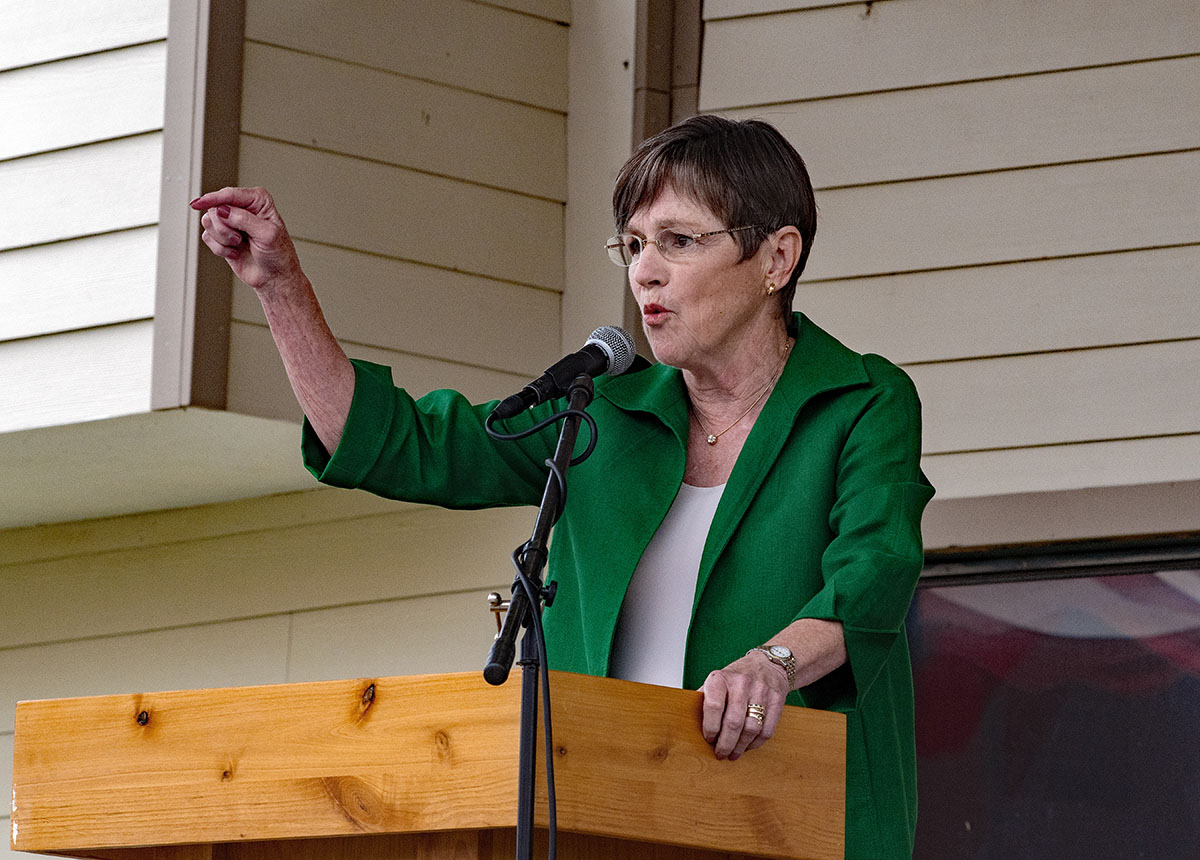Alleged criminals awaiting trials in Kansas could be released without having their day in court for lack of a speedy trial when a Kansas state of emergency declaration expires. Legislators adopted the Kansas Emergency Management Act (KEMA) last March. It gave the Kansas Supreme Court authority to suspend deadlines for jury trials when the state is under a disaster declaration. When the state’s disaster declaration expires, the Supreme Court’s authority to suspend deadlines expires along with it. And the statutory clock for holding a speedy trial starts ticking.
The Governor has the authority to extend the emergency declaration for 30 days at a time. The State Finance Council, consisting of legislative leaders, must approve the extension every month.
Marc Bennett, the Sedgwick County District Attorney, sounded the alarm during a state finance council meeting back in September.
“As it is, with jury trials still being held, the backlog will take many months to work down, especially in larger jurisdictions,” he told the council. “The backlog in the smaller jurisdictions may not be as large, but they will have difficulty getting lawyers and judges in the same courtroom at the same time each week to work down the backlogs they do have.”
Court Suspends Speedy Trial Deadlines
The Governor, with the approval of the state finance council, extended the current emergency declaration last week. The Chief Justice of the Kansas Supreme Court, Marla Luckert, followed suit the same day issuing a new administrative order to continue suspending statutes of limitation, statutory time standards, deadlines, and time limitations. Both the state emergency declaration and the administrative court order expire on Dec. 15.
“Our courts are processing many cases remotely and many are resuming in-person trials and proceedings, but health and safety concerns present barriers to access to justice and require a measured approach to resuming in-person jury trials,” Luckert said in a press release.
In many jurisdictions, prosecutors face a backlog of cases that under normal circumstances would take more than a year to clear. Without changes to Kansas’s speedy trial statutes, alleged dangerous criminals could escape justice once the clock starts ticking again.
Typically, there are more than 70 jury trials in Johnson County courts every calendar. No jury trials have occurred in the state’s largest county court system since March. Johnson County courts suspended in-person jury trials through February of 2021 and more than 90 cases are pending.
“We’re in unchartered waters,” Johnson County District Attorney Steve Howe told a group of Republicans during an Oct. 20 luncheon. “We have really serious cases that have to be tried.”
Emergency Declaration Required
While many states have vague language requiring speedy trials, Kansas has specific deadlines in statute, according to Mike O’Neal, an attorney and former Speaker of the Kansas House. For instance, the statute requires that anyone charged with a crime and held on bond must be brought to trial within 180 days after arraignment or set free.
“It’s a universal concern for our state,” said Todd Thompson, the Leavenworth County District Attorney. He recognizes that many Kansans are ready to see an end to COVID emergency declarations.
“But that means the speedy trial clock starts, and if that speedy trial clock starts, we have to give them a jury or the case gets dismissed,” he said.
Jury Trial Speed
Once the clock is ticking, jury trials could move slower than normal.
“You have to think about the process. You have to send out notice to jurors 30 to 60 days in advance. Then, jurors on top of that, many might not come in because they have health risks. And then you have to get jurors who are qualified. Then you have to make sure you have proper spacing, masks, ability for them to hear and see the jury trials. Everybody is working feverishly to try to figure this out,” he said.
However, he says some of the backlog might clear quickly once jury trials start. Things are at a standstill, he explained, in part, because there’s an incentive for defense attorneys and defendants not to negotiate plea deals right now.
“If you think about it, if the system starts moving, you’ll see pleas and things of that nature,” he said.
Amending statute so an emergency declaration can cease without overtaxing the judicial system will be a top priority for lawmakers when they return to Topeka for the 2021 session in January.
“We need to get back to session and get rid of our duplicative speedy trial law. This is already a conditional right, and the law on the books complicates it,” House Speaker Ron Ryckman said. “The most important thing is not letting a bunch of bad actors out of jail.”




